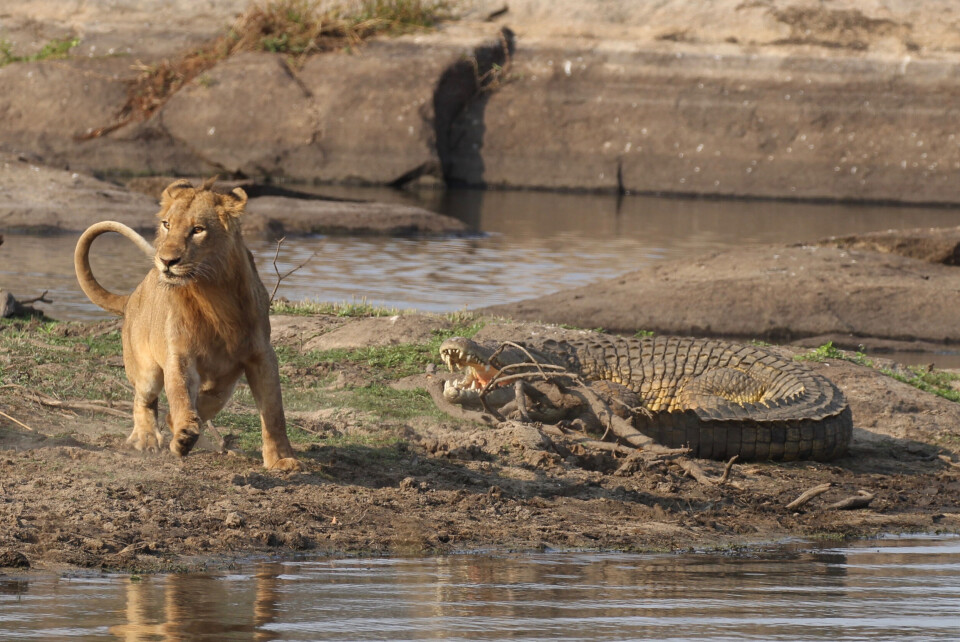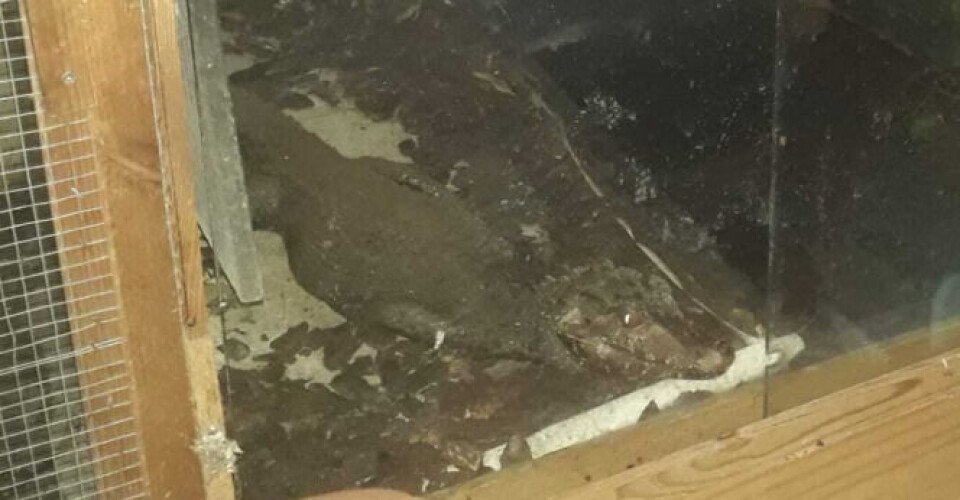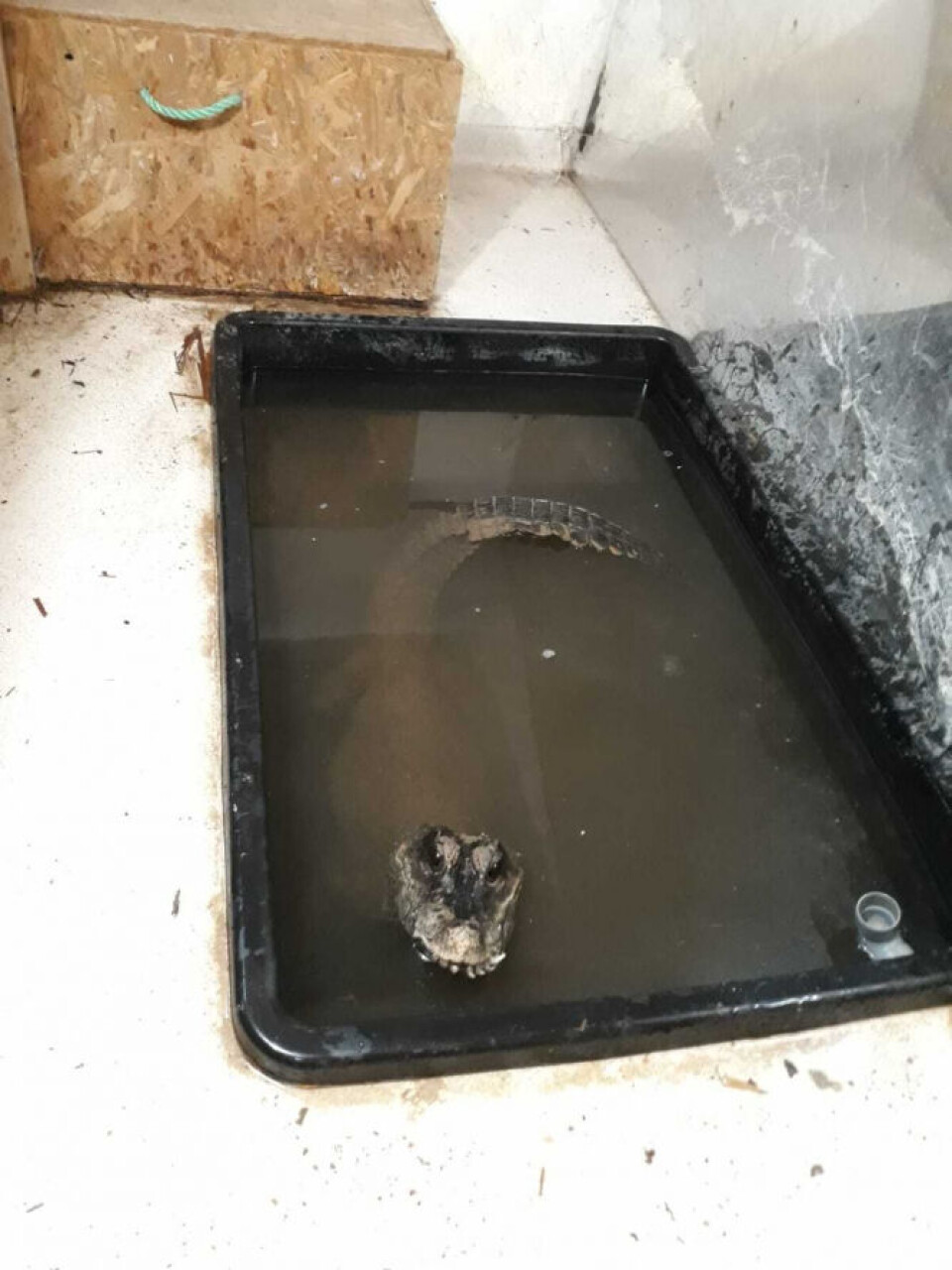-
France leads efforts to save critically endangered European mink from extinction
A reintroduction plan is in place to save the species, which is more threatened than the Giant Panda
-
Europe’s only 'elephant retirement home' opens to public in France
The sanctuary helps to rehome former zoo and circus elephants as France phases out use of wild animals in live performances
-
French law offers long-term protection for garden wildlife
Owners in France can call on the law for help to ‘rewild’ their land. Here is how
Lions, crocodiles: How exotic animal ownership rules work in France
The issue is in the spotlight after two crocodiles and a caiman were recently found living in unsuitable conditions at a house in Essonne

France allows home ownership of almost every type of animal as long as certain legal conditions have been met, The Connexion has been told by experts of animal rights and dedicated training schools.
Owners need a ‘certificat de capacité’, the legal document delivered by local préfectures in order to be allowed to own non-domestic, exotic or wild animals. An ‘autorisation d’ouverture’ is needed to be allowed to sell non-domestic, exotic or wild animals.
The legislation came under the spotlight after an animal rights association found two crocodiles and a caiman living in unsuitable conditions after it intervened at a house in Etréchy (Essonne).

Credit: Action protection animale
The home contained more than a hundred reptiles with one weighing 80 kilos.
The association was alerted to the situation by the owner’s wife in late 2020 when she reported that she was unable to manage the reptiles since the couple were divorcing and she was now living alone.

Credit: Action protection animale
In a separate case, a man pleaded guilty yesterday (September 5) in a trial relating to the illegal captivity of a lion cub aged a month and a half in 2017 in Noisy-Le-Sec (Seine Saint-Denis). He had been intending to use the animal for a rap music video.
Read more: Big cat’ captured in eastern France is a Savannah cross
“The reptiles really went under the radar. No neighbours would have thought they were living next to them,” said Arnauld Lhomme of Action Protection Animale (APA), the organisation which intervened at the Etréchy house.
The organisation intervened over suspicions of unsuitable living conditions as the crocodiles and the caiman were being housed in a basement with only artificial light. The owner said the reptiles were 45 years old and had been living in the house for 25 years.
The owner is known to the authorities and has an acknowledged good reputation in reptile management, said Mr Lhomme.
He had sometimes been given reptiles to look after by the French Office for Biodiversity.
One crocodile was not registered to legal authorities, said Mr Lhomme.
The reptiles were transferred to a sanctuary centre in Munich where they received treatment. One crocodile is paralysed in both back legs, Mr Lhomme said.
The lion cub was transferred to a centre in South Africa in 2017, said Mr Lhomme, who personally intervened while working for 40 Millions d’Amis, another French association for animal rights.
The lion cub had been acquired through an illegal sale involving a circus company that had not registered the animal, he added.
‘One of the weirdest countries’
“It is extremely rare [to have students taking non-domestic certificats de capacité], ” said Alexis Gonzalo, an animal handling trainer at the Campus Agronova school, adding that 90% of the training schemes delivered there were for domestic animals.
The certificat de capacité for such animals is harder to get since it requires in-depth knowledge of the species the person wants to own.
It usually requires 70 hours of training covering medical, physiological, and general knowledge before a file case is presented before the Commission des sites et des paysages for approval.
Anyone wanting to obtain the certificat de capacité must have worked in a company or organisation in relationship with the animal for at least three years, said Mr Gonzalo.
The ‘autorisation d’ouverture’ is required if the owner intends to sell such animals.
While France has not officially legislated on the establishment of a liste positive: an EU law restricting the ownership of animals to a dozen different species, the ecological transition ministry has said that it had enacted a law on animal abuse in 2021 that contained such a measure.
The ministry was answering on a Senate draft bill looking to enact an official liste positive.
“We are one of the weirdest countries [on animal-rights]. We try to cover up laws with certificat de capacités,” said Mr Lhomme.
Related articles
Hot summer boosts gecko numbers in south-west France
Animal first aid course gives French pet owners tips on emergency care
























